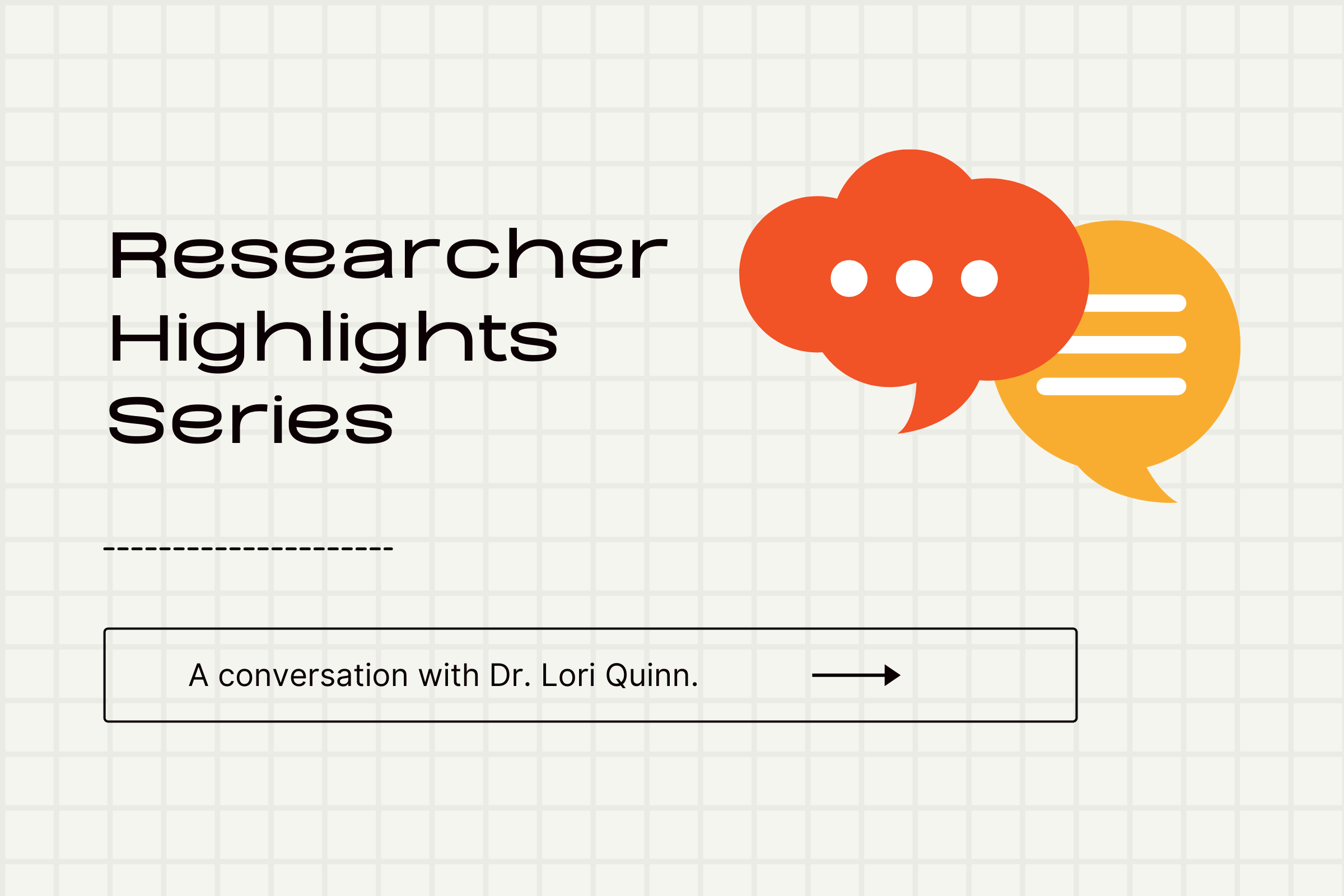This TC IRB blog series, Researcher Highlights, includes a sequence of interviews with members of Teachers College’s researcher community and offers insights into how researchers engage in study activities, deal with the demands of the pandemic, and engage in ethical practices.
In this blog series, Chloe O’Neill, a TC IRB Research Compliance Assistant, met with researchers representing diverse content knowledge to explore the fibers of the research community at Teachers College. Each blog post in the series will highlight a researcher (or research lab/center). Each interviewee was interviewed for 45 minutes, asked similar questions, and encouraged to share insights into how they see themselves in a researcher role and as part of the TC research community.
Student Outcomes and Existing Data with Dr. Tyler Watts

Dr. Tyler W. Watts joined Teacher College in 2019 as an Assistant Professor of Developmental Psychology in the Department of Human Development where he focuses on longitudinal studies of early childhood development particularly in education settings. Tyler received a Ph.D. in Education from the University of California, Irvine (UC Irvine) and worked as a Research Assistant Professor and Postdoctoral Scholar at New York University (NYU) for two years. Tyler primarily uses existing data sets to study early childhood development through educational evaluations of various initiatives and/or curriculum (e.g., Chicago School Readiness Project and the Building Blocks preschool mathematics curriculum). He aspires to evaluate these interventions to identify those that support early cognitive development and encourage lasting developmental outcomes. Tyler hopes his research will promote better informed policies for equitable cognitive and socio-emotional development among children from underserved communities. To explore more of Tyler’s work, please visit his Google Scholar page.
Path to Research Questions
“Secondary data analysis, the research is already ‘done’.”
Tyler’s interest in topics surrounding inequality began at UC Irvine. He credited his graduate school advisor, Dr. Greg Duncan, as an influence who shaped his interests and research methodology. Dr. Duncan’s secondary analysis of longitudinal studies suggested that early childhood programs could be a lever for significant change particularly in the lives of low income children. Growing out of his advisor’s work, Tyler’s interests narrowed on early childhood development and the ways childhood experiences relate to longer term developmental outcomes. He specifically focused on the efficacy of educational programs intended to support early childhood development and/or academic achievement. He refined his methodology to focus on existing datasets of longitudinal studies.
Tyler explained the benefits and challenges of existing data to create secondary data sets to use as the basis for research studies. A benefit is that existing data comes from studies that are already complete and can be used in numerous ways for future data analysis. Existing data also poses challenges for researchers who must acquire, store, manage, and secure the digital data. Secondary analysis of existing longitudinal studies requires a skilled team to clean, de-identify, and store the data securely.
IRB Preparation and Submission
Tyler reflected on (1) the IRB protocol process, (2) existing data considerations and management, and (3) building relationships to simplify the IRB process.
“Any time I am considering using a new dataset, I write up a protocol.”
(1) When in Doubt, Submit an IRB Protocol for Review
- Tyler noted his research preparations usually begin with the question, “Do I need an IRB for this?” He quickly replied, in general, “Yes.”
- He shared that IRBs at different institutions vary in their requirements for review of existing data.
- Tyler often errs on the side of caution and submits a protocol each time he considers working with a new existing dataset in order to allow the IRB to determine next steps.
- Additionally, Tyler noted publication requirements. Most publications now require an IRB protocol identification number when researchers submit their publications. Therefore, submitting a protocol for review to the IRB before starting the project saves time and allows his research to be considered for future publication.
“Do we think this is what the participant agreed to?”
(2) Existing Data Considerations and Management
- Tyler discussed specific considerations for working with existing data. He began by elaborating on when secondary analysts have previous consent forms.
- Tyler noted that secondary analysts do not always have access to previous consent forms.. For researchers who do have access to consent forms, Tyler provided several useful considerations.
- Begin by reflecting on the ways in which the original consent forms were interpreted by participants. They define the parameters of the original consent form. “Is their research question aligned with what the participant originally consented to?” “What if the participants consented when the study was originally conducted, but would not want to be part of the current study (e.g., three years later)?”
- Tyler provided a few examples of specific scenarios they have encountered that may override previously collected participant consent:
- (1) If a participant does not consent to be in the current study, even though they gave consent several years ago, and
- (2) If a parent gives consent but the student does not assent, they abide by the student’s desire to not participate in the study.
- Tyler provided a few examples of specific scenarios they have encountered that may override previously collected participant consent:
- Tyler also considers the data rights of participants and third party rights when obtaining data release waivers for datasets including SAT scores, college enrollment, etc.
- Data release rights and agreements vary across institutions. Witheducation data, researchers must also be aware of The Family Educational Rights and Privacy Act (FERPA; What is FERPA?) and The Protection of Pupil Rights Amendment (PPRA; What is PPRA?) in addition to IRB decisions. Please find the What is FERPA and PPRA Accessible version here.
- Researchers should also familiarize themselves with the data content (e.g., what is included in the data, is there identifiable information) and the data release processes (e.g., who owns the data, who has publication rights to the data, are there data access or use restrictions). In some cases, the IRB may recommend that a researcher consult the Office of General Counsel on how to acquire the data set, especially with large datasets or datasets that involve multiple institutions.
- Begin by reflecting on the ways in which the original consent forms were interpreted by participants. They define the parameters of the original consent form. “Is their research question aligned with what the participant originally consented to?” “What if the participants consented when the study was originally conducted, but would not want to be part of the current study (e.g., three years later)?”
“The bar is moving, it’s only moving toward getting more secure and higher standards … ”
- Tyler emphasized that his data analysis process has improved over time and this progress is largely credited to staying organized.
- Tyler values best practices for his research team that emphasize data organization, storage, de-identification, and expectations. He noted that when data is acquired through merged or shared records, it should be stored on a secure drive and de-identified before analyzing it within the bounds of the research questions. Researchers can consult TC IT with inquiries on data security and management.
- Further, Tyler noted that he sets clear expectations with his research team and graduate students about what it means for data to be de-identified and how to manage identifiable data.
- Throughout the research process, it is important to develop your team's comprehension of federal and institutional regulations that may apply to your field of work. Tyler displayed this through developing his team’s understanding of identifiable data by defining direct identifiers and requesting frequent review of IRB standards to ensure compliance.
“Having someone who I know as an actual person that I can talk to has made it so much easier.”
(3) Building Lasting Relationships
- Tyler credits mentor and advisor relationships for his IRB literacy and practice.
- Tyler mentioned a Project Director at NYU who trained him on how to write protocols for secondary data analyses. They still connect frequently to discuss IRB related questions.
- He also mentioned prioritizing relationships with IRB administrators at each institution. Once he transitioned his research to Teachers College, he made a point to connect with the Teachers College Institutional Review Board Director to ask questions and forge a working relationship for future scenarios.
- He emphasized the value of these relationships by making a point to train and include his graduate students alongside his process as well. Tyler suggested these relationships can simplify the IRB process by collaborating on specifics, clarifying requirements, and promoting a culture of participant protection.
Reflection and Advice for Future Researchers
Tyler concluded that his hope for these studies is to further explore what drives the human developmental process. Tyler emphasized how valuable participants’ time is, especially with regards to longitudinal studies. He hopes to continue to reveal findings from these participants' valuable time commitment, and that these studies can help answer some important questions. He aspires that through the protection of participants, the valuing of the participants’ time, and leveraging existing data, that we can better inform future early childhood development policy and practices.
“Peoples’ time is very valuable and have we done anything with this data that is worth the time that people have invested?”
Tyler encouraged researchers to get to the IRB office “early and often.” He emphasized the value of working relationships and noted how much easier the process is to navigate when you prioritize those relationships. The ability to connect and know the actual person you are emailing regarding the complexities of the IRB process can alleviate the confusion and stress of the unknown.
Tyler provided valuable advice for future researchers preparing for the IRB process and considerations for working with existing data. He suggested practicing caution, erring on the side of transparency with the IRB office; so in times of uncertainty, connect with the IRB office. Lastly, researchers should consider the consent process when conducting research years after the original consent was collected from the research participant.
To learn more about ways to connect with the IRB office, please visit our Meeting and Deadlines webpage and review our office hours. To learn more about submitting a protocol using existing data, please visit our guide.
To follow the rest of the Researcher Highlight series, please find Dr. Lori Quinn’s and Dr. Catherine DeLazzero’s on our blog page.
